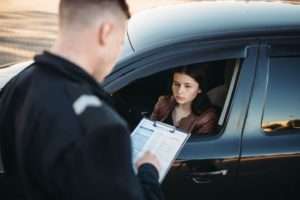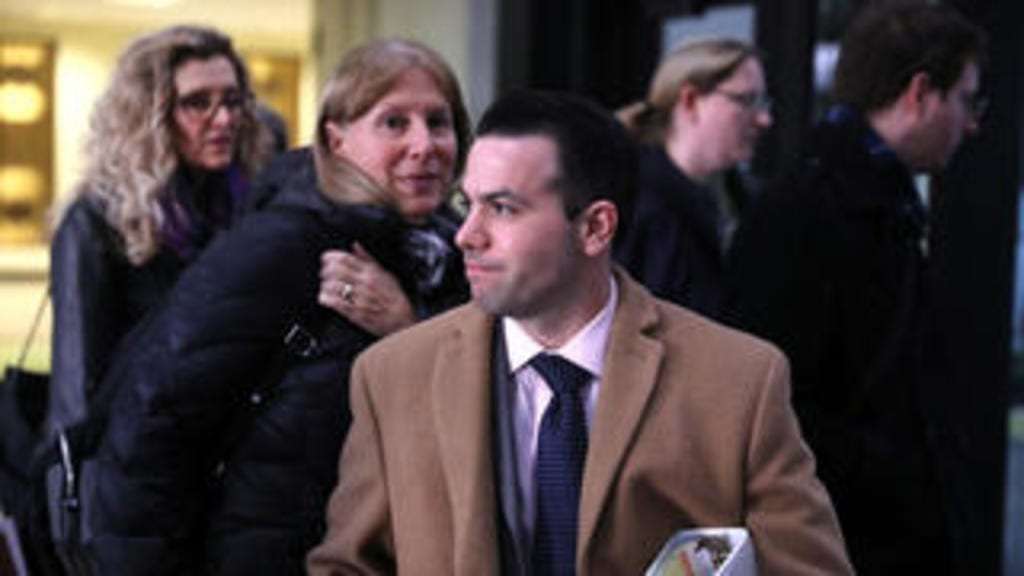
Any conviction involving a traffic violation can have serious consequences for your license. Each offense can incur points against your license under Illinois State Law, which could result in an increase in insurance premiums, suspension of your license, or even the termination of your driving privileges.
Before any serious consequences can arise from your traffic violation, it is of utmost importance that you seek legal counsel from an experienced traffic attorney after you receive a traffic ticket or you are arrested for a driving offense.
Common Traffic Violations We Represent
Moving Violations
Traffic violations involving vehicles in motion are called moving violations, which carry stringent penalties and hefty fines within the state of Illinois.
Speeding
Under Illinois state law, there are different types of speeding violations, depending on the limit exceeded. Going over the posted speed limit serves maximum penalties of $1,000 for petty speeding (25 mph over the posted speed limit or less) and $2,500 for aggravated speeding (26 mph over the speed limit or more), which may also be punishable by jail time of 6 to 12 months.
Speeding in a School Zone
As stated under Illinois Law, drivers are prohibited from driving at a speed of not more than 20 mph in a school zone where a higher standard of driving safety is demanded. Penalties for an Illinois speeding ticket include a minimum fine of $150 excluding other mandatory fees for first time violators. Repeat violations have a minimum fine of $300 excluding other mandatory fees and court fees.
Speeding in a Construction Zone
Drivers are prohibited from driving over the posted limit inside a construction or maintenance zone, which applies regardless of the presence of construction personnel. The first violation is considered a petty offense and is fined $250 minimum to a maximum of $1,000. Subsequent offenses are still considered petty offenses, fined $750. However, when committed within two years of the first violation, a 90-day license suspension shall be imposed on the violator by the Illinois Secretary of State. The penalty is served if there is at least one construction personnel that were present at the construction or maintenance site during the time of the offense.
Aggravated Speeding in a Construction Zone
Any person driving 26 mph or higher but less than 35 mph over the speed limit inside a construction or maintenance zone is guilty of aggravated speeding, which is a Class B misdemeanor, which is a criminal offense punishable by 6 months in jail and a $1,500 fine excluding other mandatory fees and court costs. Traveling more than 35 mph over the speed limit is a Class A misdemeanor, which is a criminal offense punishable by jail time of up to 1 year and fined $2,500 excluding mandatory fees and court costs.
Reckless or Dangerous Driving
Willfully driving without regard for personal safety as well as the safety of others is classified a Class A misdemeanor, which is punishable by a minimum of 1 year jail time and $2,500 + mandatory court fees.
Street Racing/Drag Racing
Any person guilty of street racing is slapped with a Class A Misdemeanor. Penalties are fined $250 minimum excluding mandatory costs and court fees. Any subsequent offenses are fined $500 minimum. This may also lead to an indefinite loss of driving privileges when the license is revoked after a conviction is made. A driver convicted of street racing involving bodily harm, permanent disability or disfigurement of other people may be charged with Aggravated Street Racing, classified as a Class 4 Felony punishable by imprisonment for 1 to 12 years.
Texting While Driving
Operating any mobile device while driving is classified as a Class A misdemeanor if the action results in great bodily harm, disfigurement, or permanent disability, with fines amounting to a maximum of $2,500. If mobile phone usage results in a death, a maximum fine of $25,000 and jail time of 1 to 3 years will be imposed.
Driving Under the Influence of Drugs or Alcohol (DUI)
In Illinois, a DUI is a very serious offense. Typically the first DUI offense is classified as a Class A Misdemeanor, leading to a maximum of 1 year in county jail, a minimum of 100 hours community service, and fines at $500 minimum. The second DUI offense can also lead to 1 year in jail time with a fine of $1,250. Subsequent offenses are considered felonies with higher fines and even more jail time.
Following Too Closely
Under Illinois State law, drivers are required to not follow another vehicle more closely than a reasonable distance. The driver should be mindful of the speed of other vehicles, traffic, and road conditions. Classified as a petty offense, the violation is fined at a maximum $1,000 fine, excluding mandatory fees and court costs.
Not Using Turn Signals
In accordance with Illinois state law, drivers are required to use appropriate car turn signals in certain situations. Classified as a petty offense, the first offense is fined at a minimum of $150 plus mandatory fees and court costs. A subsequent offense is fined at a minimum $300 plus mandatory fees and court costs.
Disobeying Posted Traffic Signs or Lights
The State of Illinois requires drivers facing a red light to come to a full stop and at a clearly marked stop line, to obey all stop signs and yield signs. All are classified as petty offenses and are fined up to $1,000 minimum, excluding mandatory fees and court costs.
Driving Without A Valid License
Classified as a Class B Misdemeanor, defined as driving with a previously issued license or permit that has been expired for more than 1 year, or have never been issued a driver’s license or permit. A traffic ticket lawyer may aid in Illinois license reinstatement. The penalty is set at a maximum of 6 months of jail time, 12 months maximum for Class A Misdemeanors, and a fine of $2,500 excluding mandatory fees and court costs.
Non-Moving Violations
Typically, non-moving violations are less serious than moving violations. However, when an Illinois traffic ticket, even for a non-moving violation, is left unpaid, it could lead to a suspended license in Illinois.
Parking Violations
Most parking violations involve parking too far away from a curb, parking too close to a fire hydrant, excessive muffler noise, broken headlights or taillights, and illegal window tinting.
Classified as minor infractions, fines range from $80 to $400.
Unpaid Traffic Tickets
If the State discovers you have unpaid Chicago traffic tickets, the city may decide to impound your car or suspend your license. If you refuse to pay, your best option is to contest your violation with a traffic ticket lawyer.
Cases Involving Commercial Driver’s License (CDL) Holders
Holders of Commercial Driver’s Licenses face stiffer penalties when charged with a traffic violation. The best thing to do is to hire a competent Chicago traffic lawyer to handle CDL violations. Any convictions arising from traffic violations are not only detrimental to the status of your license, but may also endanger your employment, CDL benefits, and insurance premiums.
Serious Violations for CDL Holders
Under Illinois State of Law, the following are considered serious traffic violations for CDL Holders:
- Speeding 15mph Or More Over The Posted Limit
- Reckless Driving
- Lane Change Violations
- Improper Lane Usage
- Improper Passing
- Using A Cellphone While Operating a Commercial Motor Vehicle or Texting While Driving
- Following Too Closely
Major Disqualifying Offenses For CDL Holders
- Driving Under The Influence
- Refusal to Submit To a Breath-Alcohol Test
- Driving a Commercial Vehicle with a Blood Alcohol Concentration Of 0.04 or more
- Leaving The Scene Of An Accident
- Driving a Commercial Vehicle With A Revoked CDL
CDL Disqualification
A CDL holder is disqualified from operating a commercial motor vehicle when the driver commits two serious infractions or three non-serious traffic violations within a three-year period. Each offense carries their own penalties, which may lead to a two-month CDL disqualification or a four-month CDL disqualification, respectively. Any subsequent offense could lead to a permanent disqualification of the CDL.
Know Your Rights
As a motorist, you must not respond to intimidation by police officers when stopped for a possible traffic violation. The law protects your rights as a motorist. Don’t be rude or condescending to a police officer during a traffic stop and do not start an argument. Instead, know what you can do and say to avoid any escalation.
- You have the right to leave the scene when you are not under arrest. A police offer cannot hold you or stop you from leaving when a citation has already been issued.
- You have the right to not allow anybody or vehicle search without a search warrant.
- You have the right to remain silent during questioning. Police officers cannot compel you to talk and incriminate yourself.
- You have the right to face and confront your accuser. You can question and cross-examine the arresting officer and other witnesses as well as bring your own witnesses.
- You have the right to an appeal. If you believe that an error was committed during the hearing that made the judge render an incorrect decision, you may appeal your case to the Illinois Appellate Court within 30 days.








